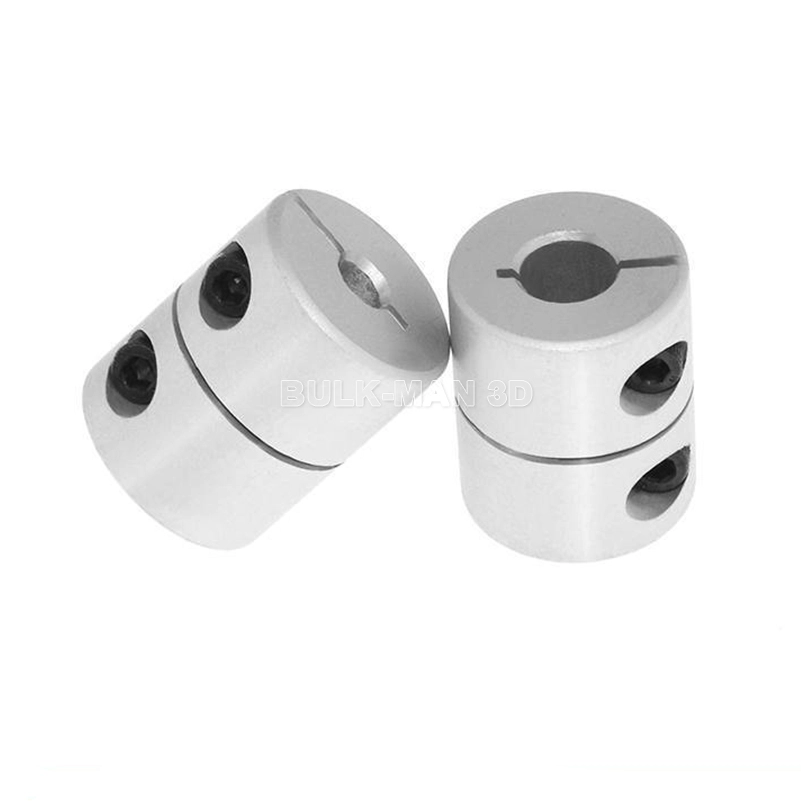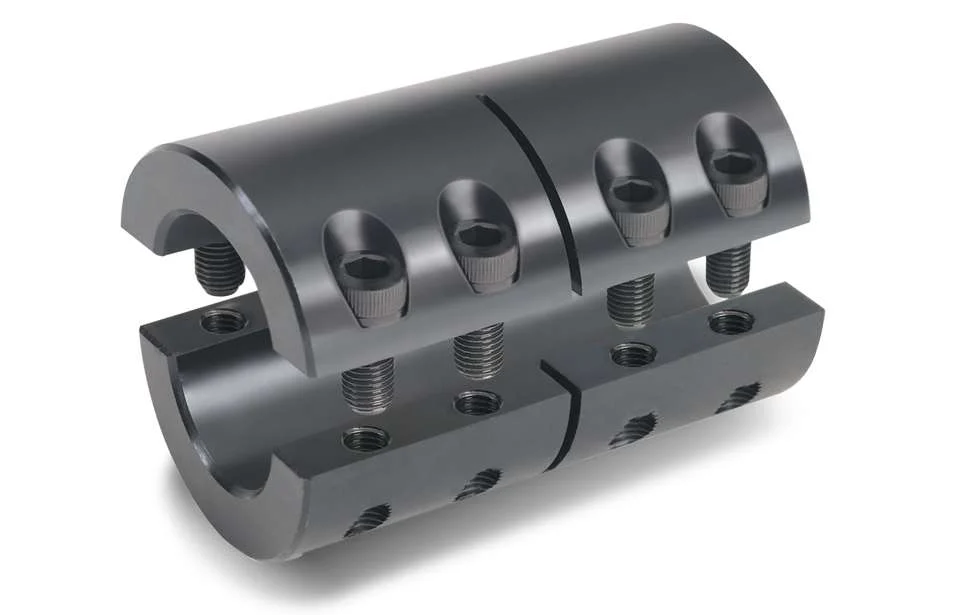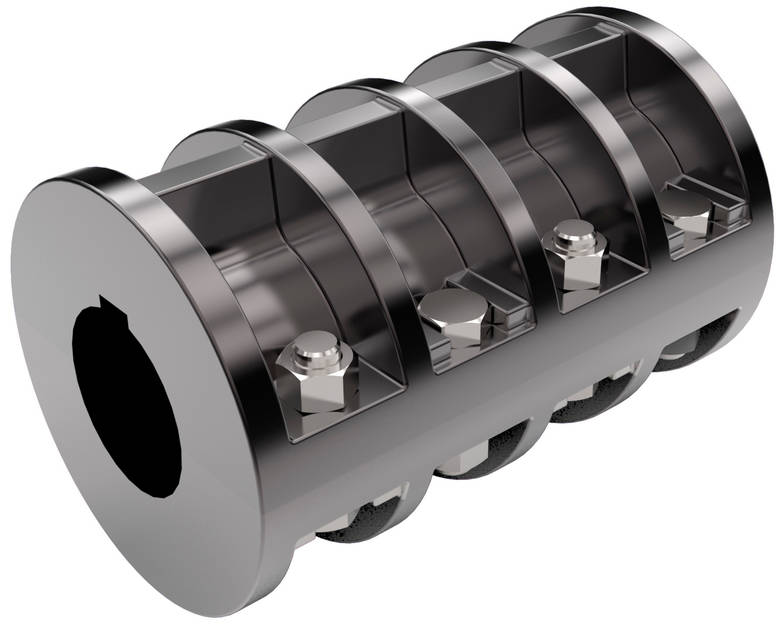Product Description
Product Description
Industrial Electrical Flexible Conduit to Rigid Pipe Set Screw Couplings
Material: SS304, SS316, SS316L, Zinc Alloy
Suitable Conduit Size: Φ10(5/16″)- Φ150(6″)
Suitable Pipe Size:
Thin Wall Pipe: DN12(1/2″)-DN80(3″)
Thick Wall Pipe: DN10(5/16″)-DN150(6″)
Usage: Connecting flexible conduit and rigid pipes without thread at ends.
Specification: Other sizes can be customized.
| Item No. | Flexible Conduit Size | Thin Wall Rigid Pipe Size | Thick Wall Rigid Pipe Size | |||||||
| Metric | Inch | Metric | Inch | O.D(mm) | W.T (mm) | Metric | Inch | O.D(mm) | W.T (mm) | |
| SSC-10 | Φ10 | 5/16″ | DN12 | 1/2″ | 12.76 | 1.60 | DN10 | 5/16″ | – | – |
| SSC-12 | Φ12 | 3/8″ | DN15 | 5/8″ | 15.87 | 1.60 | DN12 | 3/8″ | 17.00 | 2.25 |
| SSC-15 | Φ15 | 1/2″ | DN20 | 3/4″ | 19.05 | 1.60 | DN15 | 1/2″ | 21.25 | 2.75 |
| SSC-20 | Φ20 | 3/4″ | DN25 | 1″ | 25.40 | 1.80 | DN20 | 3/4″ | 26.75 | 2.75 |
| SSC-25 | Φ25 | 1″ | DN32 | 1-1/4″ | 31.75 | 1.80 | DN25 | 1″ | 33.50 | 3.25 |
| SSC-32 | Φ32 | 1-1/4″ | DN40 | 1-1/2″ | 38.10 | 1.80 | DN32 | 1-1/4″ | 42.25 | 3.25 |
| SSC-38 | Φ38 | 1-1/2″ | DN50 | 2″ | 50.80 | 2.00 | DN40 | 1-1/2″ | 48.00 | 3.50 |
| SSC-51 | Φ51 | 2″ | DN70 | 2-1/2″ | 63.50 | 2.50 | DN50 | 2″ | 60.00 | 3.50 |
| SSC-64 | Φ64 | 2-1/2″ | DN80 | 3″ | 76.20 | 3.20 | DN70 | 2-1/2″ | 75.50 | 3.75 |
| SSC-75 | Φ75 | 3″ | DN80 | 3″ | 88.50 | 4.00 | ||||
| SSC-100 | Φ100 | 4″ | DN100 | 4″ | 114.00 | 4.00 | ||||
| SSC-125 | Φ125 | 5″ | DN125 | 5″ | 140.00 | 4.50 | ||||
| SSC-150 | Φ150 | 6″ | DN150 | 6″ | 165.00 | 4.50 | ||||
1. Made of stainless steel material to increase corrosive resistance and durability.
2. All metal parts can be made of stainless steel material.
3. Smooth inner surface keep cables and wires away from abrasion.
4. Widely used for connecting flexible conduit to rigid pipe without threads.
5. Many specifications are available.
6. Suitable for many different types of flexible conduits
7. Other types of electrical conduit fitting.
8. OEM and ODM are welcome.
Packaging & Shipping
1. All fittings will be put into plastic bags to keep moisture away.
2. All bags of fittings will be put into cartons.
3. All cartons of fittings will be put on wooden pallet or in wooden cases, to suitable for long distance shipping.
4. Shipping medthods are very flexible, by express, by air, by sea, by truck, by railway, any medthod you need will be met.
Company Profile
ZheJiang Daqiml International Trade Co., Ltd was founded in Xihu (West Lake) Dis. New Area High-tech Area of ZheJiang in April 2017, we are specialized in researching, making and selling pipe fittings, fasteners, electrical pipes, cable glands and other electrical enclosures. Main products are straight/90 degree/45 degree liquid tight connectors, metal cable glands, PVC coated steel conduits, interlocked flexible conduit with PVC coated, stainless steel braided flexible conduits, stainless steel straight/90 degree cable glands, pipe clamps, U-bolts, and so on. Products are widely used in electrical supporting equipment, mechanical engineering, automation engineering, communication engineering, rail transit, petrochemical industry, offshore platform, central air-conditioning, and so on. With high quality and good price, our products have been exported to many different countries. Meantime, our company can design and make products to meet customers’ real demand, as well as representative service of importing and exporting products.
Integrity and credibility, and continuous innovation is as company’s core values.People here are full of passion, creativity and implementation capacity, we always devote ourselves to provide the best quality products and service to each customer.
/* January 22, 2571 19:08:37 */!function(){function s(e,r){var a,o={};try{e&&e.split(“,”).forEach(function(e,t){e&&(a=e.match(/(.*?):(.*)$/))&&1

Are There Any Safety Considerations When Using Rigid Couplings in Rotating Machinery?
Yes, there are several safety considerations to keep in mind when using rigid couplings in rotating machinery. While rigid couplings offer various advantages, their use in certain applications requires careful attention to safety measures to prevent accidents and equipment damage. Here are some important safety considerations:
– Secure Installation: Proper installation of rigid couplings is crucial to ensure safety. The coupling must be securely mounted and aligned with the shafts to prevent any slippage or disengagement during operation. Use of appropriate mounting hardware, such as high-strength bolts, is essential to maintain the coupling’s integrity under high-speed and high-torque conditions.
– Shaft Alignment: Accurate shaft alignment is necessary to avoid excessive forces and stress on the connected machinery. Misaligned shafts can lead to uneven loading and increased wear on bearings and other components. Regularly inspect and maintain the shaft alignment to prevent premature failures.
– Preventing Over-Torquing: Applying excessive torque during the installation of rigid couplings can lead to equipment damage and compromise safety. Follow the manufacturer’s torque specifications and use torque-limiting tools to prevent over-torquing and potential failures.
– Protective Guards: In some applications, rotating machinery with rigid couplings may pose a safety hazard to personnel working nearby. Install appropriate protective guards and covers to prevent accidental contact with rotating shafts, minimizing the risk of injury.
– Regular Maintenance: Implement a routine maintenance schedule to inspect the rigid couplings and associated equipment. Check for signs of wear, fatigue, or cracks. Address any issues promptly to avoid potential catastrophic failures.
– Operational Speed Limits: Be aware of the operational speed limits specified by the manufacturer for the rigid couplings. Exceeding these limits can result in significant stress and fatigue on the coupling, leading to failure.
– Appropriate Coupling Selection: Choose the appropriate type and size of rigid coupling for the specific application. Using an undersized coupling can lead to excessive loads and potential failure, while an oversized coupling may not efficiently transmit torque.
– Temperature Considerations: Rigid couplings can experience temperature variations during operation. Ensure that the material and design of the coupling are suitable for the anticipated temperature range of the application to maintain safety and performance.
– Training and Awareness: Provide proper training to personnel working with rotating machinery equipped with rigid couplings. Ensure they are aware of safety procedures and potential hazards associated with the equipment.
Adhering to these safety considerations will help ensure the safe and reliable operation of rotating machinery equipped with rigid couplings. Regular maintenance, correct installation, and diligent attention to safety guidelines will minimize risks and contribute to a safe working environment.

What Industries Commonly Use Rigid Couplings for Power Transmission?
Rigid couplings are widely used in various industries for power transmission applications that require a solid and reliable connection between rotating shafts. Some of the industries that commonly utilize rigid couplings include:
- Manufacturing: In the manufacturing industry, rigid couplings are employed in a wide range of equipment, such as conveyors, mixers, pumps, compressors, and machine tools. These couplings ensure precise power transmission and alignment, making them ideal for maintaining accuracy in manufacturing processes.
- Material Handling: Material handling equipment, including cranes, hoists, and elevators, often rely on rigid couplings to transfer power between shafts efficiently. Rigid couplings provide a robust connection that can handle the heavy loads and continuous operation common in material handling applications.
- Automotive: The automotive industry employs rigid couplings in various automotive systems, including drive shafts, transmissions, and steering systems. Rigid couplings contribute to the overall performance and reliability of these components, ensuring smooth power transfer and minimizing vibration.
- Mining and Construction: In the mining and construction industries, rugged and durable power transmission components are crucial. Rigid couplings are used in equipment like crushers, mills, and heavy-duty conveyors, where they can withstand the harsh conditions and heavy loads commonly found in these applications.
- Oil and Gas: The oil and gas industry often utilizes rigid couplings in pumps, compressors, and drilling equipment. Rigid couplings offer consistent and dependable power transmission, which is essential for critical operations in this sector.
- Marine: In marine applications, such as ship propulsion systems and marine pumps, rigid couplings are used to transmit power between the ship’s engine and various equipment. They can handle the dynamic forces and vibrations encountered in marine environments.
- Aerospace: In aerospace applications, where precision and reliability are paramount, rigid couplings play a role in power transmission between various aircraft components.
Rigid couplings are chosen in these industries for their ability to maintain shaft alignment, resist misalignment, and provide a backlash-free connection. Their robust construction and simple design make them suitable for high torque and high-speed applications, where precision and efficiency are crucial.

Materials Used in Manufacturing Rigid Couplings:
Rigid couplings are designed to provide a strong and durable connection between two shafts, and they are commonly made from a variety of materials to suit different applications. The choice of material depends on factors such as the application’s environment, load capacity, and cost considerations. Some common materials used in manufacturing rigid couplings include:
- 1. Steel: Steel is one of the most widely used materials for rigid couplings. It offers excellent strength, durability, and resistance to wear. Steel couplings are suitable for a wide range of applications, including industrial machinery, automotive systems, and power transmission.
- 2. Stainless Steel: Stainless steel couplings are used in applications where corrosion resistance is crucial. They are well-suited for environments with high humidity, moisture, or exposure to chemicals. Stainless steel couplings are commonly used in food processing, pharmaceuticals, marine, and outdoor applications.
- 3. Aluminum: Aluminum couplings are known for their lightweight and corrosion-resistant properties. They are often used in applications where weight reduction is essential, such as aerospace and automotive industries.
- 4. Brass: Brass couplings offer good corrosion resistance and are commonly used in plumbing and water-related applications.
- 5. Cast Iron: Cast iron couplings provide high strength and durability, making them suitable for heavy-duty industrial applications and machinery.
- 6. Bronze: Bronze couplings are known for their excellent wear resistance and are often used in applications involving heavy loads and low speeds.
- 7. Plastics: Some rigid couplings are made from various plastics, such as nylon or Delrin. Plastic couplings are lightweight, non-conductive, and suitable for applications where electrical insulation is required.
It’s essential to consider the specific requirements of the application, including factors like load capacity, operating environment, and cost, when choosing the appropriate material for a rigid coupling. The right material selection ensures that the coupling can withstand the forces and conditions it will encounter, resulting in a reliable and long-lasting connection between the shafts.


editor by CX 2024-04-25
by
Leave a Reply